통합 검색
통합 검색
- 작성자 관리자
- 조회수 201
Abdulrazak Gurnah: A Voice for Colonialism and Refugees
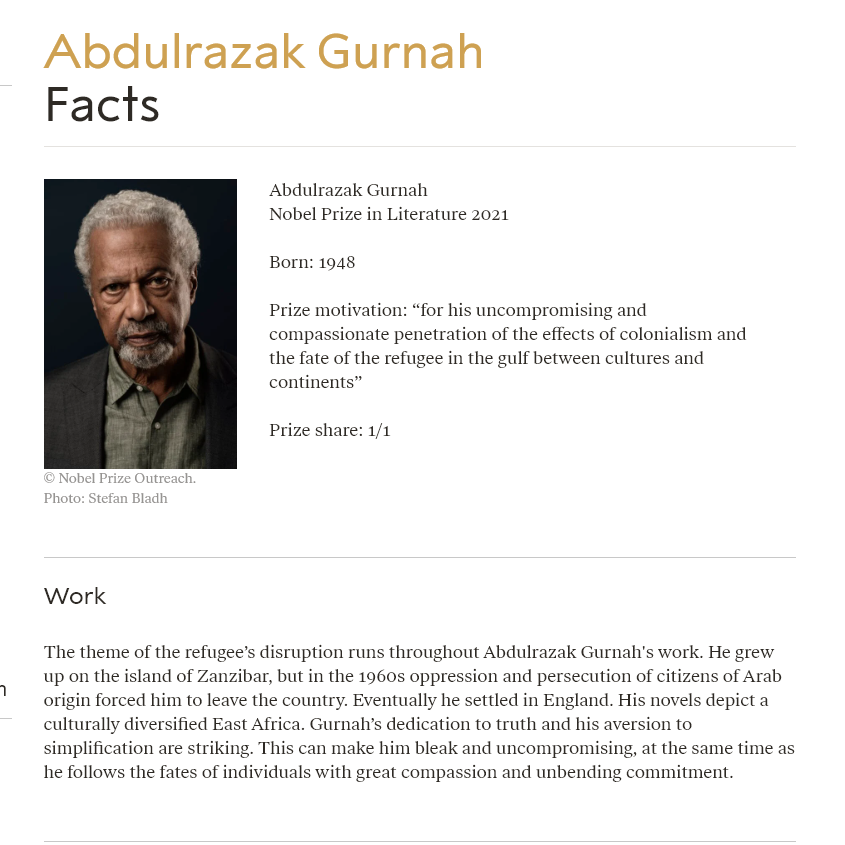
Chapter 1: The Life and Background of Abdulrazak Gurnah
1.1 Childhood in Zanzibar
Abdulrazak Gurnah was born on December 20, 1948, on the island of Zanzibar, Tanzania. Zanzibar, an archipelago located off the coast of East Africa in the Indian Ocean, has historically been a crossroads of diverse cultures, including Arab, Indian, Persian, and European influences. In the 19th century, Zanzibar was under the rule of the Omani Empire, later becoming a British protectorate before gaining independence in 1963. However, political instability persisted after independence, and the Zanzibar Revolution of 1964 became a pivotal event that drastically changed Gurnah's life.
Growing up in Zanzibar, Gurnah was exposed to a multicultural society where Arab, African, and Indian communities coexisted, and Swahili was the primary language. Gurnah himself spoke Swahili as his mother tongue and learned English through colonial education and exposure to Arabic.
However, after the Zanzibar Revolution, the political landscape shifted dramatically, leading to the persecution of Arab and minority communities. The revolutionary government targeted Arab and Indian residents, resulting in arrests and massacres. Amid this turmoil, Gurnah left Zanzibar in his late teens and sought refuge in the United Kingdom.
1.2 Life as a Refugee in the UK and Adaptation
At 18, Gurnah arrived in the UK as a refugee, facing the challenges of adapting to a new environment and overcoming language barriers. Although he had learned English in Zanzibar, it was only after settling in the UK that he began to use the language extensively. During his early twenties, Gurnah immersed himself in European literature and philosophy while continuing to learn English.
Living as an outsider in British society, Gurnah experienced the struggles of being a refugee, the loss of belonging, and the difficulties of cultural adaptation. These experiences became a crucial foundation for his literary exploration of refugee identity and migration.
Gurnah pursued his education in the UK, eventually earning a Ph.D. in English literature from the University of Kent, where he later became a professor, teaching postcolonial literature and English literature.
1.3 The Beginning of His Literary Journey
Gurnah began writing novels in the late 1980s. His first novel, Memory of Departure (1987), explores the story of a young man leaving Africa for Europe, highlighting the conflicts of colonialism and postcolonial society. He followed this with Pilgrims Way (1988) and Dottie (1990), establishing himself as a writer who meticulously examines the experiences of refugees and the diaspora.
However, it was his 1994 novel Paradise that brought him international recognition. Set in East Africa on the eve of World War I, the novel vividly depicts the commercial exploitation and cultural clashes of the colonial era. Paradise was shortlisted for the Booker Prize, marking Gurnah's emergence as a significant voice in global literature.
1.4 Academic Contributions and African Literature Research
In addition to his work as a novelist, Gurnah made significant contributions as a literary scholar. He specialized in postcolonial literature, particularly African and refugee literature, and played a key role in elevating the global status of African literature.
Gurnah, alongside writers like Chinua Achebe and Ngũgĩ wa Thiong'o, challenged Eurocentric perspectives and offered new approaches to understanding African and refugee narratives.
1.5 Nobel Prize in Literature and Global Recognition
In 2021, Abdulrazak Gurnah was awarded the Nobel Prize in Literature, bringing him worldwide acclaim.
Nobel Committee's Evaluation:
The Nobel Committee praised his works for "uncompromising and compassionate penetration of the effects of colonialism and the fate of the refugee," highlighting his ability to portray the complex identities and memories of individuals crossing geographical and cultural boundaries.
Following the Nobel Prize, his works gained wider translation and scholarly attention, particularly his major novels such as Paradise, By the Sea, and Afterlives. Gurnah's recognition reaffirmed the importance of African and refugee literature in the global literary canon.
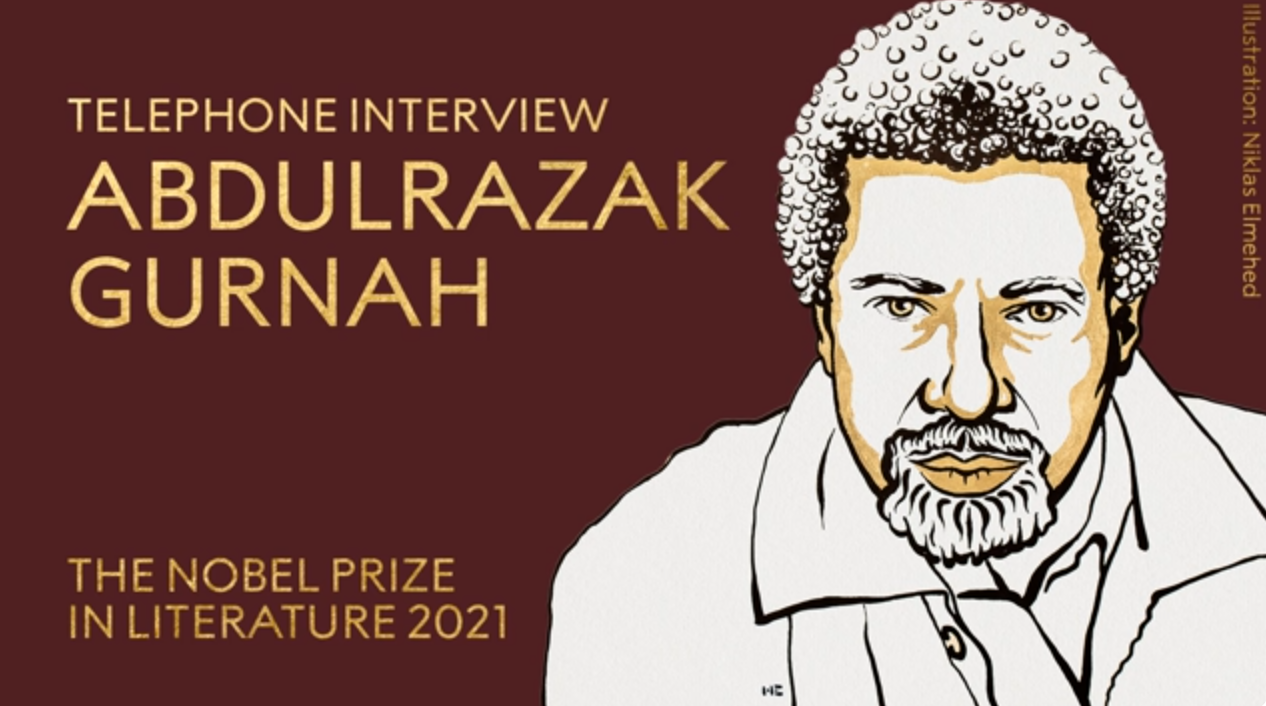
Chapter 2: The Literary Characteristics and Themes of Abdulrazak Gurnah
Abdulrazak Gurnah's literature delves into themes of colonialism, refugee identity, cultural conflict, and the interplay of memory and forgetting. His works transcend Eurocentric narratives, offering a fresh perspective on the world through the eyes of Africans and refugees.
This chapter explores the key features of his literary world and the central themes he addresses, connecting them to his major works.
2.1 Key Literary Characteristics
2.1.1 Critical Exploration of Colonialism and Its Legacy
Gurnah's works critically examine the scars and aftermath of colonialism in Africa. He portrays not only the exploitation and division caused by European powers but also the long-term effects of colonial experiences on subsequent generations.
Paradise (1994): Set in East Africa before World War I, the novel follows the journey of Yusuf, a boy growing up under the influence of Arab traders and European powers, revealing the commercial exploitation and power dynamics of the colonial era.
Afterlives (2020): Explores the lives of Africans conscripted into the German colonial army, documenting the wounds left by European imperialism on individuals and communities.
Gurnah goes beyond historical narration, illustrating how colonialism shapes personal lives through concrete experiences.
2.1.2 Refugee Identity and Migration
Gurnah's works center on the experiences of refugees. He transforms his own experiences of exile and alienation into literature, depicting characters who are forced to leave their homelands due to war, political persecution, or economic hardship, and who struggle to find belonging in new environments.
By the Sea (2001): Focuses on the life of a Tanzanian refugee in the UK, exploring cultural clashes, identity confusion, and legal challenges faced by refugees.
Dottie (1990): Portrays the life of a Black refugee woman, addressing the discrimination and alienation experienced by refugees and immigrants in British society.
Migration and identity are not just personal struggles but universal themes connected to global refugee issues.
2.1.3 Memory and Forgetting, Trauma of the Past
In Gurnah's novels, the conflict between memory and forgetting plays a crucial role. Refugees and migrants often seek to forget their pasts and start anew, but their memories persist.
By the Sea: The protagonist attempts to forget his past while applying for asylum, but legal procedures force him to confront his memories.
Afterlives: Explores how survivors of forced conscription in the German colonial army grapple with the memories of war and violence.
Memory in Gurnah's works extends beyond personal experiences, becoming a historical and societal issue.
2.1.4 Lyrical and Detailed Narrative Style
Gurnah's writing is known for its lyrical and meticulous descriptions. He focuses not on mere events but on capturing the inner lives and emotions of his characters. He often employs multiple perspectives and non-linear structures, allowing readers to naturally understand how the past and present intertwine.
Paradise: The beautiful descriptions of nature and East African landscapes contrast with the harsh realities of colonial society, leaving a strong impression.
By the Sea: The poetic and dreamlike style blurs the boundaries between memory and forgetting.
His narrative style offers readers emotional resonance and opportunities for philosophical reflection.
2.2 Analysis of Major Works
Here is a summary of Gurnah's major works:
| Title | Year | Main Themes | Features |
|---|---|---|---|
| Paradise | 1994 | Colonialism, Exploitation, Coming-of-Age | A boy's coming-of-age story set against the historical backdrop of East Africa |
| By the Sea | 2001 | Refugees, Identity, Memory | Explores refugee experiences and legal issues from the perspective of an asylum seeker in the UK |
| Desertion | 2005 | Cultural Clash, Love, Betrayal | Examines intergenerational relationships across East Africa and the UK |
| Afterlives | 2020 | Colonialism, War, Family | Explores the lives of Africans conscripted into the German colonial army and the aftermath |
His works intricately explore the intersection of history and personal lives while maintaining a focus on individual stories.
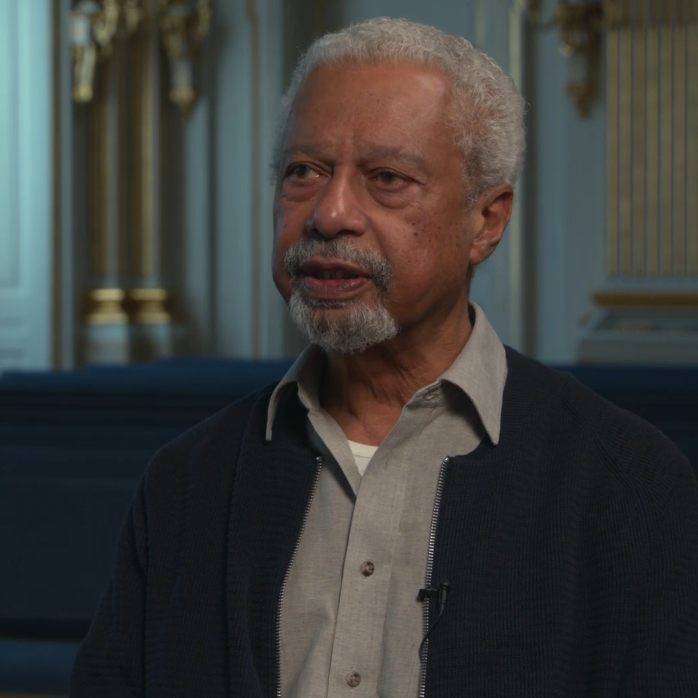
Chapter 3: Analysis of Abdulrazak Gurnah's Major Works
Abdulrazak Gurnah's works intricately explore the intersection of personal lives and historical realities, offering readers a literary experience of colonialism's legacy and refugee identity. His major works go beyond historical narration, delving into the emotions, psychology, and choices of characters within oppressive social structures.
This chapter provides an in-depth analysis of his major works, examining how he literary portrays colonialism, refugee experiences, memory, and cultural conflict.
3.1 Paradise (1994): A Portrait of Colonialism and Exploitation
3.1.1 Overview
Year: 1994
Setting: East Africa on the eve of World War I
Themes: Colonialism, Exploitation, Coming-of-Age, Identity
Awards: Shortlisted for the Booker Prize
3.1.2 Plot Summary
Paradise follows the coming-of-age story of Yusuf, a 12-year-old boy who is effectively sold into slavery to an Arab merchant, Aziz, to repay his parents' debt. Yusuf travels across East Africa with Aziz, witnessing how European and Arab traders exploit African societies.
3.1.3 Analysis
Colonialism and Economic Exploitation: Yusuf, once free, is forced into labor, symbolizing the exploitation of Africans by European and Arab powers.
Coming-of-Age and Identity: Yusuf grows and questions his identity but ultimately remains trapped by the limitations of the colonial era.
Religious and Cultural Conflict: As a Muslim, Yusuf experiences cultural confusion among Arab traders, Europeans, and African natives, reflecting broader identity struggles.
3.1.4 Significance
Paradise is not just a coming-of-age story but a powerful allegory of how colonial economic systems manipulate human lives. Through Yusuf's eyes, Gurnah vividly reveals the historical realities of East Africa and exposes the structures of exploitation and domination.
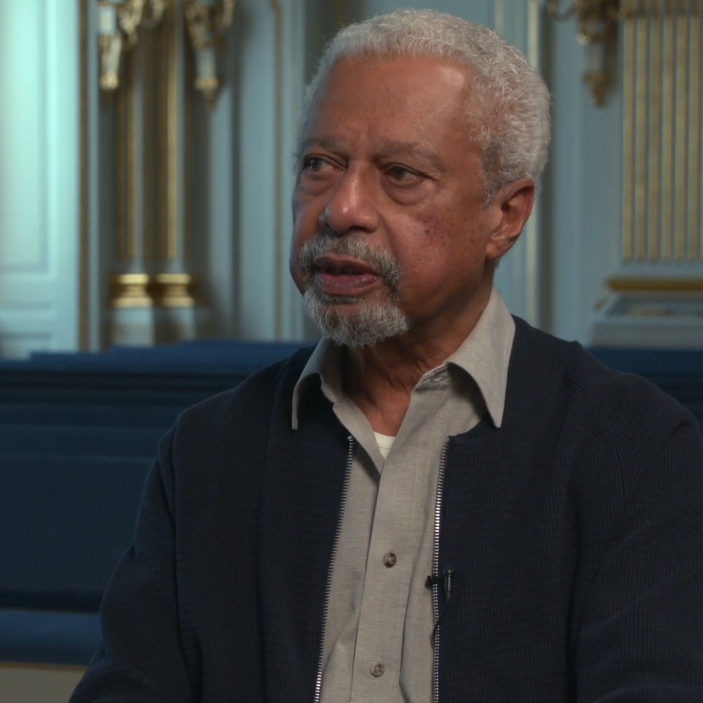
Chapter 4: The Impact of Abdulrazak Gurnah's Literature on World Literature
Abdulrazak Gurnah's literature has played a significant role in establishing the identity of African literature and shedding light on the experiences of refugees and the legacy of colonialism. His works transcend historical records, offering universal narratives that resonate with the experiences of people worldwide facing migration and identity issues.
This chapter analyzes the impact of his literature on world literature and its relevance in contemporary society.
4.1 Gurnah's Place in African Literature
4.1.1 Connection to Postcolonial Literature
Gurnah is a key figure in postcolonial literature, deepening the exploration of refugee issues, memory, and identity confusion in the aftermath of colonial rule. While writers like Chinua Achebe and Ngũgĩ wa Thiong'o focused on the clash between African traditions and colonial domination, Gurnah extends this discourse to the postcolonial era, analyzing how colonialism continues to influence personal lives and social structures.
4.1.2 Refugee and Diaspora Literature
Gurnah's focus on refugee and migrant experiences aligns with the works of scholars like Saidiya Hartman and Edward Said. His literature challenges dominant Western narratives and testifies to the ongoing inequalities and realities faced by refugees.
4.2 Gurnah's Influence in World Literature
4.2.1 Changes After the Nobel Prize
Since winning the Nobel Prize in 2021, Gurnah's works have gained global attention, elevating the status of African literature and shifting the focus to refugee and postcolonial issues. His works offer a perspective that moves beyond Eurocentric views, presenting the world through African and refugee lenses.
4.2.2 Global Refugee Issues and Literary Role
Gurnah's works provide a profound understanding of the global refugee crisis. By the Sea realistically portrays the psychological and legal challenges faced by refugees during the asylum process. As refugee issues become increasingly significant in Europe and North America, Gurnah's literature humanizes refugees, encouraging readers to see them as individuals with personal stories rather than mere statistics.
4.3 The Relevance of Gurnah's Literature in Contemporary Society
4.3.1 Highlighting Refugee and Migration Experiences Globally
While Gurnah's novels focus on African refugees, their themes resonate with global refugee crises, such as those in Syria, Afghanistan, and Ukraine. His works reflect contemporary realities, offering a deeper understanding of the conflicts surrounding refugee acceptance and rejection in Western societies.
4.3.2 Exploring Cultural Clashes and Identity Issues
Gurnah's characters often struggle with belonging, feeling out of place both in their homelands and in new environments. This theme is increasingly relevant in multicultural societies, including South Korea, where the children of multicultural families grapple with cultural identity. Gurnah's literature raises fundamental questions about home and belonging.
4.4 The Future Value of Gurnah's Literature
4.4.1 Global Expansion of African Literature
Gurnah's success marks a turning point in the global recognition of African literature. His Nobel Prize has paved the way for more African writers to be translated and studied, establishing African literature as a vital part of world literature.
4.4.2 Importance in Postcolonial Literary Studies
Gurnah's works are essential texts in postcolonial literary studies, particularly in exploring refugee identity, memory, and the aftermath of colonialism. His literature will continue to influence academic research and refugee literature studies.
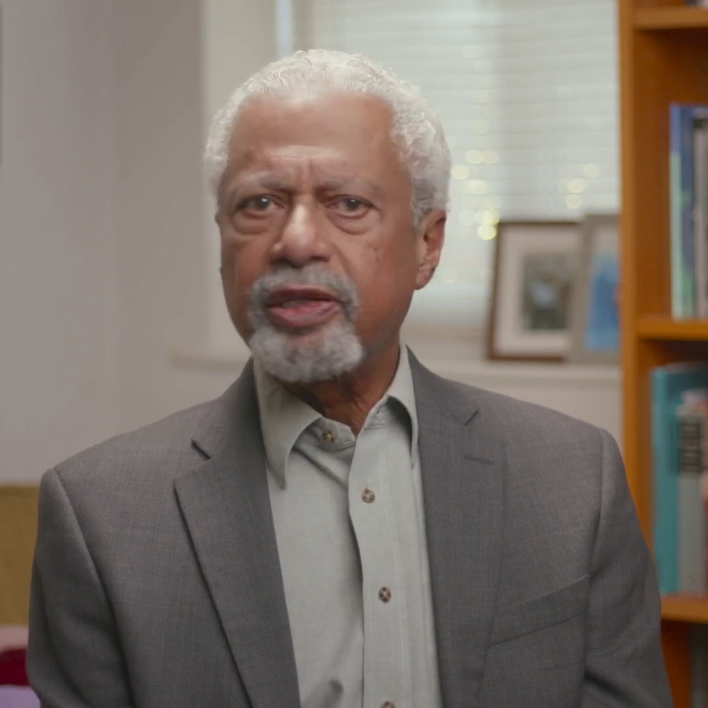
Chapter 5: The Philosophical and Social Significance of Abdulrazak Gurnah's Literature
Abdulrazak Gurnah's literature goes beyond mere storytelling to deeply explore historical, philosophical, and social issues common to humanity. His works focus on themes such as the remnants of colonialism, refugees and diaspora, memory and forgetfulness, and the fluidity of identity. They raise fundamental questions about race, migration, and belonging in contemporary society.
In this chapter, we aim to comprehensively examine the literary and philosophical significance of Gurnah's works and their position in modern society and world literature.
5.1 Philosophical Exploration in Gurnah's Literature
5.1.1 Human Identity is Fluid, Not Fixed
The characters in Abdulrazak Gurnah's novels are often immigrants, refugees, or those crossing cultural boundaries. They come to realize that their identity is constantly evolving, rather than being fixed. For instance, Salih Omar from "By the Sea" tries to erase his past while seeking asylum in England, but ultimately, his past influences his present. The characters in "Afterlives" discover their transformed selves under the influence of German colonialism.
Core Question: The question "Who am I?" is not merely determined by birthplace or nationality but is continuously reshaped throughout one's life. Gurnah's literature demonstrates that identity is not fixed but is a concept reconstructed within historical and social contexts.
5.1.2 Memory and Forgetfulness: How Should We Remember the Past?
The characters in Gurnah's novels wish to leave their past behind, but it is not easily forgotten. In "By the Sea," the protagonist hides his past to seek asylum, yet eventually has to face it again during the refugee screening process. "Afterlives" portrays how memories of colonial rule and war persist across generations.
Core Question: Memory extends beyond the personal to social and historical dimensions. Should we remember or forget the past? Does denying the past make it disappear? Gurnah emphasizes that "history is not just recorded but lives on in the memories of individuals and communities."
5.2 Social Perspectives in Gurnah's Literature
5.2.1 Highlighting the Reality of Refugees and Migration
Today, migration and refugee issues are significant social concerns globally. With refugees from Syria, Afghanistan, and Ukraine moving to Europe, the issue of refugee acceptance continues to be debated internationally. Gurnah's works view migration and refugee issues not merely as political problems but as matters intertwined with human experiences and emotions.
Refugees are not just numbers but individuals with personal stories, wounds, relationships with family, and fears for the future. Gurnah portrays refugees in a way that fosters deeper empathy from readers by understanding their inner lives rather than othering them.
5.2.2 The Problem of Belonging in Multicultural Societies
The theme of belonging is central in Gurnah's novels. His characters often do not fully belong anywhere. They are not entirely accepted in their birthplace or their new environment. This issue is becoming increasingly significant in multicultural societies like Europe, the USA, and even East Asian countries like South Korea. As multicultural families increase, second-generation immigrants in South Korea face cultural identity and belonging challenges. Gurnah's novels can aid in understanding these issues deeply.
5.3 The Position of Gurnah's Literature in World Literature
5.3.1 Expanding Postcolonial Literature
Gurnah has expanded postcolonial literature. While traditional postcolonial literature focuses on colonial experiences, Gurnah explores the aftermath of colonialism, addressing structural issues and refugee problems that persist after colonial rule has ended. His literature focuses on analyzing the modern impact of historical events rather than merely recounting the past.
5.3.2 Increased Global Attention Post-Nobel Prize
Following Gurnah's Nobel Prize win, his works have garnered more academic research and translations. He has contributed to African literature's emergence from a Western-centric perspective. He is recognized as a significant figure in refugee and diaspora literature. His literature transcends borders, exploring common human experiences and gaining increased importance in the modern world.
5.4 The Significance of Gurnah in 21st Century Literature
Abdulrazak Gurnah has explored essential issues that 21st-century literature must address:
- Depicting the refugee and migration problem in literature
- Investigating the legacy of colonialism and its structural problems
- Highlighting the fluidity of identity and cultural conflicts
- Deeply exploring the issues of memory and forgetfulness, analyzing the relationship between history and individuals.
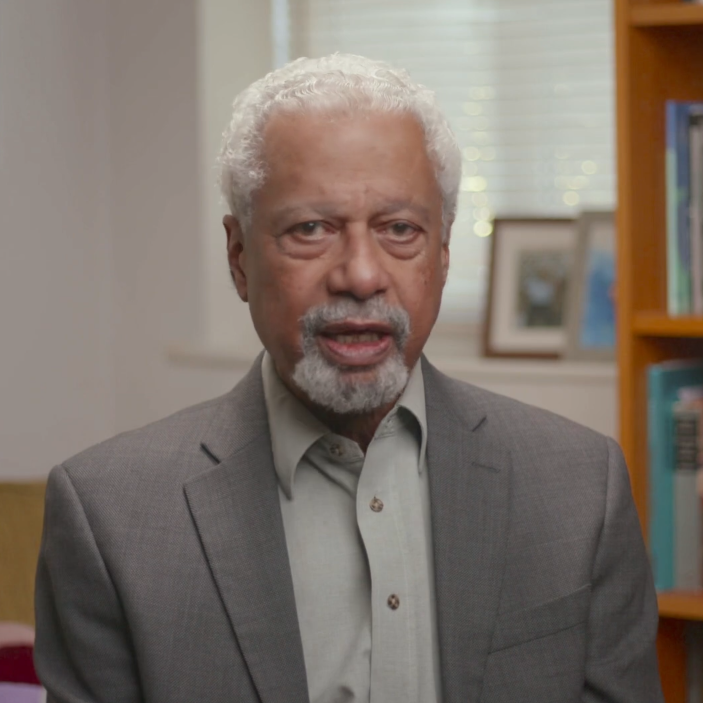
Chapter 7: Comprehensive Evaluation and Future Value of Abdulrazak Gurnah's Literature
Abdulrazak Gurnah's literature is not merely a narrative of refugees or a historical record of the colonial era. He explores universal themes like the legacy of colonialism, migration, identity, memory, and forgetfulness. This provides profound insights into how the world we live in was shaped and how we should move forward. In this final chapter, we will summarize the comprehensive evaluation of Gurnah's literature, reflect on its significance in modern society and literature, and anticipate how his works will be read in the future.
7.1 Core Values of Abdulrazak Gurnah's Literature
The core values of Gurnah's literature can be summarized as follows:
7.1.1 Expanding Refugee and Diaspora Literature
Gurnah has expanded refugee and diaspora literature, portraying refugee issues not merely as political problems but as structural global issues.
- "By the Sea" emphasizes that refugees are not merely victims but individuals with their own memories and identities. Refugee and migration issues are ongoing global phenomena, not past problems, as illustrated in his literature.
- Gurnah's literature does not consume refugees as objects of sympathy but fosters deep empathy from readers by exploring their inner lives.
7.1.2 In-Depth Exploration of the Legacy of Colonialism
Gurnah's works emphasize that the impact of colonialism does not disappear just because the colonial era ended.
- "Paradise" explores economic exploitation and hierarchy within Africa during the colonial era through Yusuf's life, while "Afterlives" shows how the wounds left by German colonialism change individuals and communities. His works aid in analyzing current inequalities and structural problems.
7.1.3 Philosophical Significance of Memory and Forgetfulness
Gurnah poses the philosophical question, "Should we remember or forget?"
- The protagonist of "By the Sea" hides his past for asylum, but eventually, memories resurface. "Afterlives" explores how memories of war and colonialism affect subsequent generations. His literature questions how individuals and society remember and overcome historical trauma.
7.2 Gurnah's Position in World Literature
Abdulrazak Gurnah is a pioneering author who explored crucial issues for 21st-century literature.
- His literature has contributed to elevating African literature to the center of world literature.
- He has become one of the most critical voices in modern literature dealing with the aftermath of colonialism, refugees, and identity issues.
Gurnah is not just a representative of African literature but a pioneering author who positioned refugee and migration issues as central themes in world literature.
7.3 Future Value of Gurnah's Literature
Gurnah's literature is not a mere historical record but literature for the present and future. Refugee issues will continue, and Gurnah's literature will serve as essential texts for understanding these problems. The legacy of colonialism and issues of historical memory will remain topics of discussion, and his works will be indispensable for analyzing them. Therefore, his literature will continue to be researched and read over time.
7.4 Conclusion: Questions Raised by Abdulrazak Gurnah's Literature
Through Gurnah's works, we can ask the following questions:
- "Who are we, and where do we belong?"
- "Should we remember the past or forget it?"
- "How should we view immigrants and refugees?"
Abdulrazak Gurnah's literature is not just a narrative but works that pose philosophical questions about critical issues society must contemplate.
댓글 0